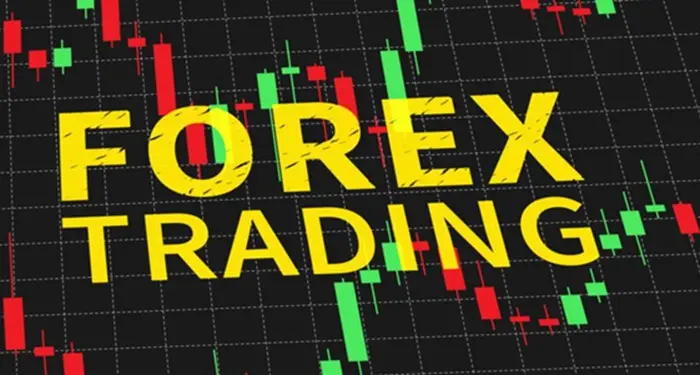The US stock market has consistently outperformed international markets for many years. Investors often wonder why this happens. There are several reasons behind this trend. The US has a strong economy, innovative companies, and a favorable business environment. These factors help US stocks grow faster than stocks in other countries.
In this essay, we will explore why US stocks tend to do better than international stocks. We will look at key factors such as economic strength, technological leadership, corporate governance, and market liquidity. Each of these plays a role in making US stocks more attractive to investors. By the end, you will have a clear understanding of why the US market remains a top choice for long-term growth.
Economic Strength
The US has the largest and most stable economy in the world. A strong economy supports corporate earnings, which drive stock prices higher. The US benefits from high consumer spending, a skilled workforce, and a culture of entrepreneurship.
Many US companies operate globally, giving them access to international markets. This global reach helps them grow faster than companies limited to their home countries. The US also has a flexible labor market and efficient capital allocation, which boosts productivity.
Another advantage is the US dollar. It is the world’s reserve currency, meaning many international transactions are done in dollars. This reduces currency risks for US companies and makes their stocks more appealing to foreign investors.
Technological Leadership
The US is home to the world’s most innovative companies. Technology giants like Apple, Microsoft, and Amazon dominate their industries. These companies invest heavily in research and development, keeping them ahead of competitors.
Silicon Valley is a hub for startups and tech innovation. Many of these startups grow into large, profitable companies. Investors benefit from this growth as stock prices rise over time.
Other countries have tech companies, but few match the scale and influence of US firms. The US also has strong intellectual property laws, protecting innovations and encouraging more investment in technology.
Corporate Governance
US companies follow strict corporate governance rules. These rules ensure transparency and protect shareholder rights. Investors trust US markets because they know companies must report financial information accurately.
Many international markets have weaker governance standards. Some countries allow insider trading or poor financial reporting. This makes investors hesitant to put money into those markets.
US regulations also encourage shareholder-friendly policies. Companies often return cash to investors through dividends and stock buybacks. This increases investor confidence and supports higher stock prices.
Market Liquidity
The US stock market is the most liquid in the world. Liquidity means investors can easily buy and sell stocks without affecting prices too much. High liquidity attracts more investors, creating a cycle of growth.
Large trading volumes mean lower transaction costs. Investors prefer markets where they can enter and exit positions quickly. Many international markets have lower liquidity, making them less attractive.
The US also has deep capital markets. Companies can raise money easily through stocks and bonds. This helps them expand and innovate, further boosting stock performance.
Political and Legal Stability
The US has a stable political system and strong legal protections for businesses. Investors value predictability, and the US offers a reliable environment for long-term investments.
Some international markets face political instability or corruption. Changes in government policies can hurt businesses and stock prices. The US, despite occasional political debates, maintains a consistent business climate.
The rule of law in the US protects property rights and contracts. Companies and investors know their assets are safe. This stability encourages more investment in US stocks.
Access to Capital
US companies have easy access to funding. Venture capital and private equity firms invest heavily in startups and growing businesses. The stock market also provides a way for companies to raise money through initial public offerings (IPOs).
Many international companies struggle to get funding. Banks in some countries are reluctant to lend, and capital markets are less developed. This limits their growth potential compared to US firms.
The Federal Reserve’s policies also play a role. Low interest rates in recent years have made borrowing cheap for US companies. This has helped them invest in expansion and innovation.
Sector Composition
The US stock market is dominated by high-growth sectors like technology, healthcare, and consumer discretionary. These sectors tend to grow faster than traditional industries like manufacturing or utilities.
Many international markets rely more on older industries. For example, some European markets have large banking and energy sectors, which grow more slowly. This difference in sector composition gives US stocks an advantage.
The US also has a strong focus on disruptive technologies. Companies in artificial intelligence, biotechnology, and renewable energy drive market growth. Investors looking for high returns naturally favor US stocks.
Investor Sentiment
Investor confidence in US stocks remains high. Many people see the US as the safest and most profitable place to invest. This positive sentiment drives more money into US markets, pushing stock prices higher.
International markets often face skepticism. Currency risks, political instability, and slower growth make them less appealing. Even when international stocks are cheap, many investors prefer the safety of US stocks.
The US also has a large domestic investor base. Retirement funds, mutual funds, and individual investors pour money into the stock market. This constant demand supports higher stock prices over time.
Conclusion
US stocks outperform international stocks for many reasons. The US has a strong economy, leading technology companies, and good corporate governance. Market liquidity, political stability, and easy access to capital also play a role. The dominance of high-growth sectors and positive investor sentiment further boost US stock performance.
While international markets offer diversification, the US remains the best choice for long-term growth. Investors who understand these factors can make better decisions about where to put their money. The consistent outperformance of US stocks is likely to continue, thanks to the country’s unique advantages.
Related topics:
































